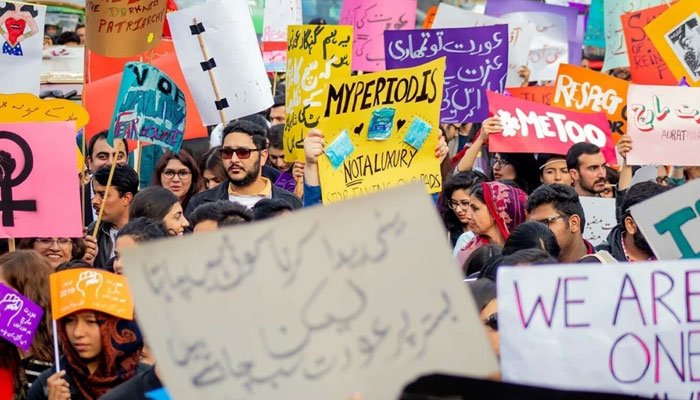Lahore High Court Upholds Right to Protest: Dismisses Petition Against Aurat March.
Court Dismisses Petition Against Aurat March. The Lahore High Court (LHC) has dismissed a petition aimed at halting this year’s Aurat March. Justice Shahid Kareem announced the verdict, ruling that the petition filed by citizen Azam Butt lacked legal standing.
The petitioner had contended that certain slogans and symbols displayed during the Aurat March were incompatible with Islamic values and urged the court to ban the event. However, Justice Kareem deemed the petition as not maintainable, affirming the constitutional right to protest and express dissent.
Emphasizing the importance of legal recourse for addressing grievances, Butt acknowledged the right of individuals to seek judicial intervention if they feel their rights are being infringed upon.
Furthermore, concerns regarding potential disruptions to law and order were raised in the petition, citing past incidents. Nevertheless, the court’s decision underscores the fundamental principle of peaceful protest as a cornerstone of democracy.
The Lahore High Court’s ruling reaffirms the significance of Women’s Day celebrations and the Aurat March as a platform for advocating gender equality and political empowerment. This year, the march in Lahore carries the theme ‘Siyasat, Muzahamat aur Azadi’ (Politics, Resistance, and Freedom), highlighting the demand for broader and more inclusive representation in the political arena.
In recent years, the Aurat March has become a symbol of women’s activism in Pakistan, drawing attention to issues of gender-based discrimination and inequality. Despite challenges and opposition, the march continues to resonate with a growing number of supporters, amplifying the voices of women across the country.
This ruling marks a triumph for civil liberties and underscores the judiciary’s commitment to upholding constitutional rights. It serves as a reminder of the importance of protecting spaces for peaceful dissent and advancing the cause of gender equality in Pakistan and beyond.





